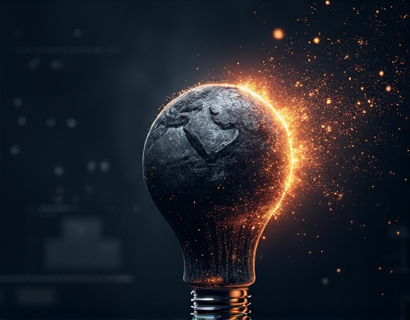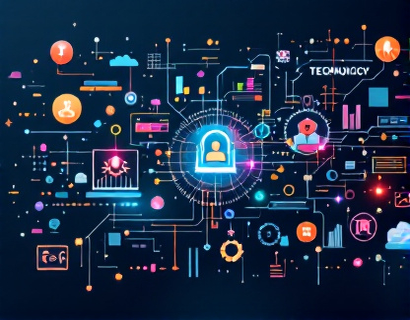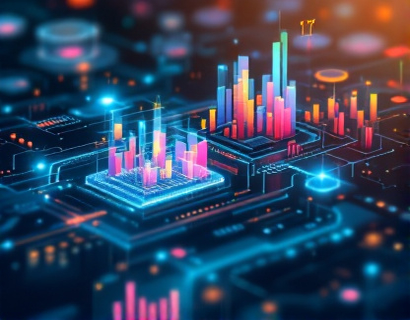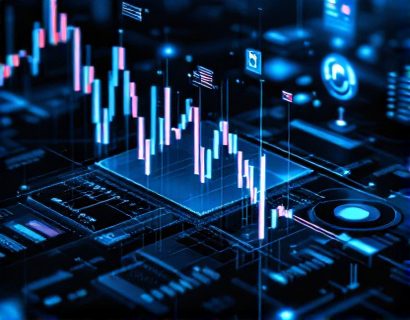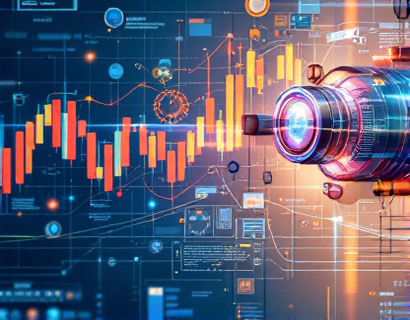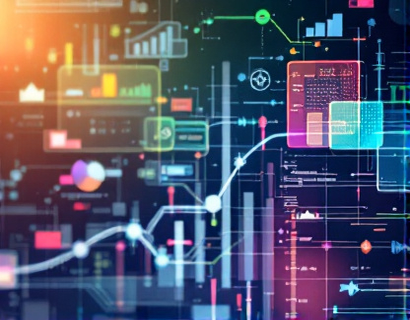Transforming App Ecosystems: The Synergy of Crypto and AI
The integration of cryptocurrency and artificial intelligence (AI) is revolutionizing the app ecosystem, offering unprecedented opportunities for enhanced user experiences and connectivity. This transformative convergence is reshaping the digital landscape, enabling the creation of next-generation applications and services that are more secure, efficient, and user-friendly. As tech enthusiasts and early adopters, understanding the potential of this synergy is crucial for navigating the future of technology.
The foundation of this transformation lies in the unique properties of blockchain technology, which underpins cryptocurrency. Blockchain's decentralized, transparent, and immutable ledger provides a robust framework for building trust and security in digital interactions. When combined with AI's capabilities in data analysis, pattern recognition, and predictive modeling, the result is a powerful toolset for developing innovative solutions that redefine user experiences.
Enhanced Security through Blockchain
One of the most significant benefits of integrating blockchain into app ecosystems is the enhancement of security. Traditional centralized systems are vulnerable to hacking and data breaches, as they rely on a single point of control. Blockchain, with its distributed nature, eliminates this vulnerability by spreading data across a network of nodes. Each transaction is verified and recorded on multiple nodes, making it extremely difficult for malicious actors to alter or manipulate the data.
For applications that handle sensitive information, such as financial services, healthcare, and identity verification, this level of security is paramount. Blockchain ensures that user data is protected and that transactions are tamper-proof, fostering greater trust among users. This trust is essential for the adoption and success of new applications, as users are more likely to engage with platforms that prioritize their security and privacy.
AI-Driven Personalization
AI plays a crucial role in enhancing user experiences through personalization. By analyzing vast amounts of data, AI algorithms can identify patterns and preferences, allowing applications to tailor content and services to individual users. This level of personalization not only improves user satisfaction but also increases engagement and retention.
In the context of app ecosystems, AI can be used to create dynamic user interfaces that adapt to user behavior in real-time. For example, a news application can use AI to curate a personalized feed based on a user's reading history and interests. Similarly, an e-commerce platform can recommend products that align with a user's past purchases and browsing behavior. These personalized experiences not only make applications more useful but also more enjoyable to use.
Efficient Backend Operations
The combination of blockchain and AI also optimizes backend operations, leading to more efficient and scalable applications. Blockchain's smart contracts automate and enforce contractual obligations without the need for intermediaries, reducing transaction costs and processing times. AI can further enhance this efficiency by optimizing the execution of smart contracts, ensuring they run smoothly and effectively.
For instance, in supply chain management, blockchain can provide a transparent and immutable record of transactions, while AI can analyze this data to predict demand, optimize inventory, and streamline logistics. This synergy results in a more agile and responsive system that can adapt to changing market conditions in real-time.
Decentralized Identity Management
Another area where blockchain and AI are making a significant impact is in decentralized identity management. Traditional identity systems are often centralized and prone to breaches, leading to identity theft and fraud. Blockchain-based identity solutions offer a decentralized alternative, giving users control over their personal data and reducing the risk of unauthorized access.
AI can enhance these solutions by providing advanced authentication mechanisms, such as biometric verification and behavioral analysis. These methods can detect and prevent fraudulent activities more effectively than traditional password-based systems. For users, this means a more secure and convenient way to manage their identities across various applications and services.
Tokenization of Assets
The tokenization of assets is another transformative application of blockchain and AI in app ecosystems. Tokenization involves representing real-world assets, such as real estate, art, or intellectual property, as digital tokens on a blockchain. This process makes assets more liquid and accessible, allowing a broader range of investors to participate in their value.
AI can play a crucial role in this process by analyzing market trends, assessing asset value, and identifying potential investment opportunities. For example, an AI-driven platform can evaluate the potential return on investment for a tokenized property by analyzing factors such as location, market demand, and historical performance. This level of insight empowers investors to make more informed decisions, enhancing the overall efficiency of the asset market.
Enhanced User Interactions
The convergence of blockchain and AI also leads to more intuitive and seamless user interactions. AI-powered chatbots and virtual assistants can provide instant support and guidance, enhancing the user experience by addressing queries and resolving issues in real-time. These AI-driven interfaces can operate on a blockchain-based platform, ensuring that user interactions are secure and transparent.
Moreover, blockchain can facilitate decentralized governance models, allowing users to participate in decision-making processes through token-based voting systems. This democratization of governance not only increases user engagement but also ensures that applications evolve in line with the needs and preferences of their community.
Challenges and Considerations
While the potential of blockchain and AI in app ecosystems is vast, there are several challenges and considerations that must be addressed. One of the primary challenges is the technical complexity involved in integrating these technologies. Developers need to possess a deep understanding of both blockchain and AI to create robust and efficient solutions.
Another consideration is the regulatory landscape. As blockchain and AI continue to evolve, regulatory frameworks are still catching up. Applications must navigate varying laws and regulations to ensure compliance and avoid legal issues. This requires a proactive approach to legal and compliance matters, ensuring that innovative solutions are developed responsibly.
Scalability is also a critical factor. While blockchain offers many advantages, it can face performance limitations when handling a high volume of transactions. AI can help mitigate this by optimizing processes and improving the efficiency of blockchain networks. However, ongoing research and development are necessary to address these scalability challenges.
Future Prospects
The future of app ecosystems is bright, with blockchain and AI poised to drive further innovation and transformation. As these technologies mature, we can expect to see more sophisticated and integrated solutions that push the boundaries of what is possible. The convergence of decentralized systems and intelligent algorithms will continue to enhance security, personalization, and efficiency, creating a more connected and user-centric digital world.
For tech enthusiasts and early adopters, staying informed about the latest developments in blockchain and AI is essential. By embracing these technologies, we can unlock new possibilities and shape the future of the app ecosystem. The journey ahead is exciting, and the potential for transformative change is immense.



